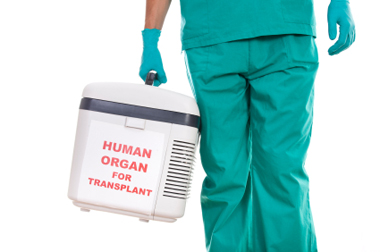
A passage from The Healthy Kidney Handbook: A Comprehensive Guide to Manage Hypertension, Control Stress, and Prevent Renal Failure, Kidney Disease, and More.
A close friend and neighbor of mine is a kidney transplant survivor, and I aimed to carefully document her reflections on various aspects of her experience. She is a married, African American woman in her forties, a mother to a teenage son, and works full time in a demanding job.
What do you recall about the period leading up to your need for a transplant?
The reason for my end-stage renal disease was polycystic kidney disease (PKD), which is hereditary. Out of my grandfather’s six offspring, four suffered from kidney disease and three underwent transplants, including my mother and two uncles; their oldest sister had PKD but tragically died from a related issue (cerebral hemorrhage). I wasn’t diagnosed until later, in 2010, about six months after my child was born, when my doctor discovered an abdominal mass during an examination, and I instinctively knew it pertained to my kidney. We performed an ultrasound, which validated the existence of cysts, and we initiated our action plan. Thankfully, my kidney function was normal during that period. My primary care physician immediately referred me to a nephrologist to establish a relationship and monitor the condition of the disease closely. The first nephrologist wasn’t a good fit, so I consulted my mom’s nephrologist, who had shifted from patient care to research, but he directed me to one of the practices he was collaborating with for research.
I began with annual nephrologist appointments, but as the onset of ESRD came with rising creatinine levels, the nephrologist and I collaborated actively as the patient. At that time, I exhibited no symptoms. However, in 2014, my creatinine levels started to rise, and I began experiencing fatigue and a constant sense of exhaustion. At that juncture, discussions began regarding our next steps. Our aim was to bypass dialysis entirely and proceed directly to transplant, which I eventually received in 2016. Prior to that, in 2015, I was referred to a surgical transplant team, attended classes, and discussed potential donors. Thankfully, my brother chose to be my kidney donor, but since polycystic kidney disease follows an autosomal dominant genetic pattern (indicating that since our mother had the condition, we each had a 50 percent likelihood of having it), they needed to ensure he did not have PKD as well. It was an extensive testing journey for him, so during that time, as my kidney function declined, I commenced home peritoneal dialysis and underwent the procedure to insert the abdominal port. Nurses had to visit my home to ensure it was a suitable and sterile environment, with training lasting for two weeks. I had a positive experience with it and needed to do dialysis for 10 to 12 hours each night for three months. Once we determined my brother was a match, we arranged our surgeries for June 2016.
What was the experience like having your brother as your kidney donor?
At that time, my brother was a single father, so we had a very serious discussion regarding how this would impact his health and overall life. We are nine years apart, and he is the younger sibling, so I have played the role of his second mother throughout his life. For him, there was never any doubt about donating his kidney to me. So, I borrowed a kidney! Our surgeries were conducted on the same day, though I am uncertain if we were in the same operating room as I was sedated. Our mother was immensely anxious having both her children undergoing surgery, but she had already faced the same situation previously with her own transplant. My mother’s donor was her sister in 1998. All family members who received transplants did so from living donors, which is quite unusual. One uncle’s donor was a coworker, while the other uncle received a kidney from his stepdaughter. The entire family was present at the hospital during our surgeries. My brother was able to return home first, while I remained hospitalized for three to four days to ensure I didn’t experience organ rejection or other complications. Typically, most patients have a longer stay, but I was incredibly determined to get up and move around to demonstrate to the nurses that I was motivated and felt well enough to be discharged.
What was the post-transplant process like?